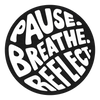
How to Become a Better Human to Other Humans
What would Dr. Martin Luther King Jr. say if he were alive today?
Since his "I Have a Dream" speech in front of the Lincoln Memorial in 1963, there's hope that the moral arc of the universe bends towards justice, but it's slower than molasses on a cold January day.
We can do better. We need to do better.
"The work of anti-racism is becoming a better human to other humans." - Austin Channing Brown
Creating cultures and brave spaces of belonging shouldn't need a business case, fight for budget, or be tucked away in the back corner of human resources. Businesses spend over $10 billion a year on DEI, and it's not working well enough; it's too transactional and performative.
Being a better human to other humans is a way of living; it's not a workshop; it's a daily intention that's as habitual as having your morning latte.
Racism is a heart disease, and it's curable. - Ruth King
The only way to heal heart disease is with love and courage. Courage to go within, stay in the conversation, and help soothe the transgenerational trauma our country fails to acknowledge appropriately.
Michael has the luxury of pushing against the status quo or not as a white cis-gender male, and can easily choose to be silent and safe rather than leaning into change and discomfort.
For most of his life, he idolized black athletes and entertainers, accepted what his teachers taught about race as gospel, and took the easy path. After discovering mindfulness, he found the courage to remove his armor, open up, and lean into the fear of learning and unlearning.
It's still not easy - it's work that has no end, and it's what he thought about the most during his cross-country ride last summer.
It's time to weave mindfulness into our communities and companies because it promotes awareness, acceptance, and action that can help us hear, see and appreciate each other more tomorrow than we do today. Mindful meditation can help us break our historical patterns, change our relationship with racial distress and pain, and create the belonging of Dr. King's dreams.
We will see plenty of social posts, as we should, honoring MLK and his mission, but what's needed most is to stay in the fight the day after, and the day after, and the day after.
That's how we build a new system for all of us, not just some of us. Not just the few who built the current system for the few. And that's a ripple worth rippling.
